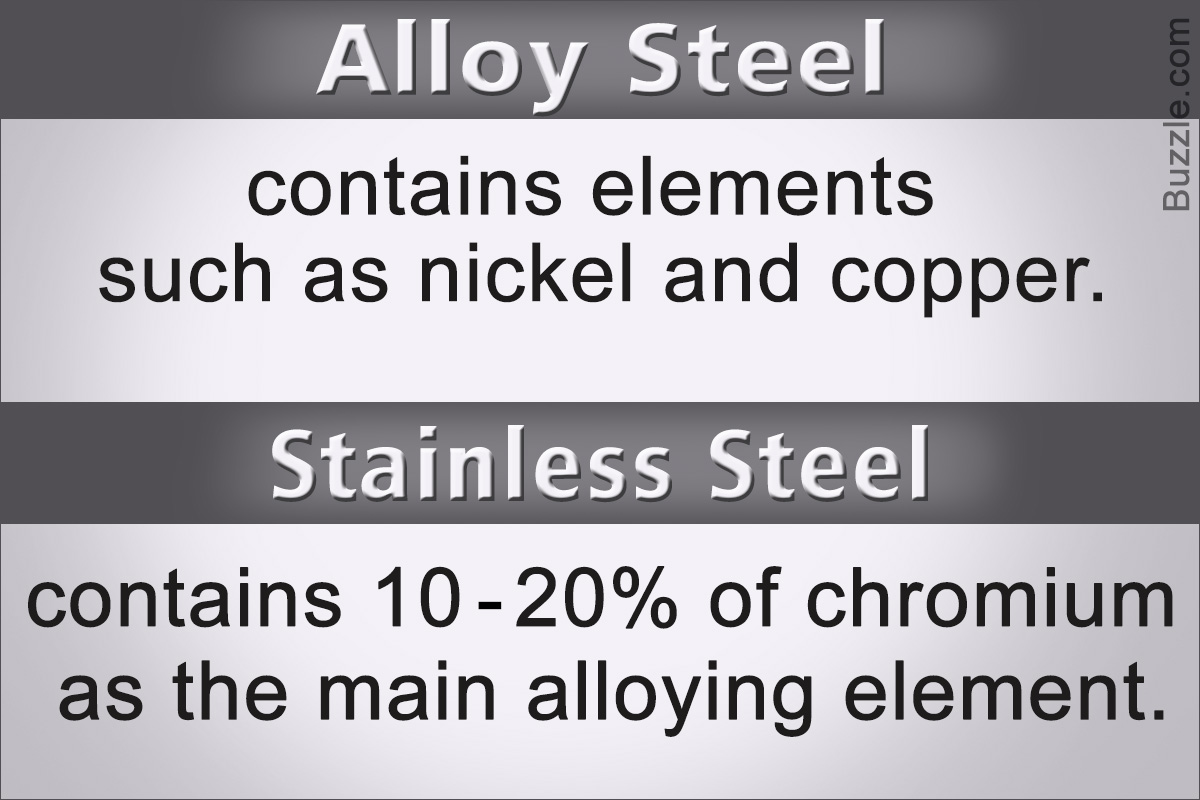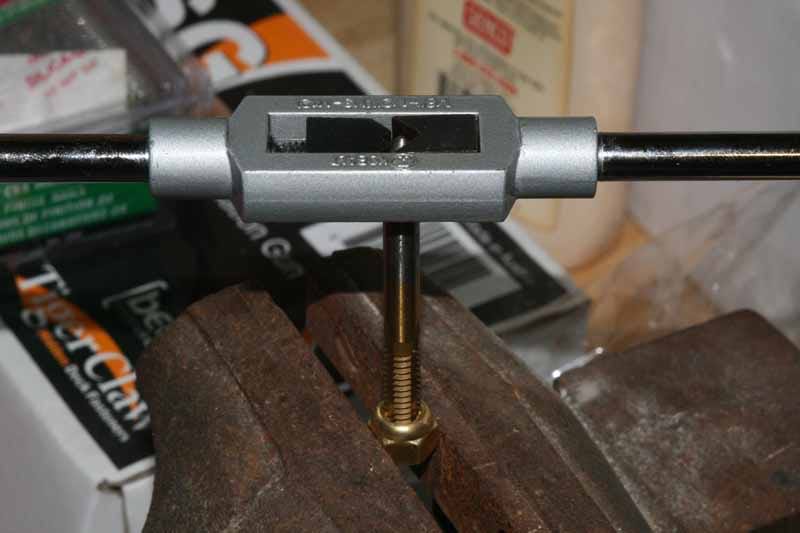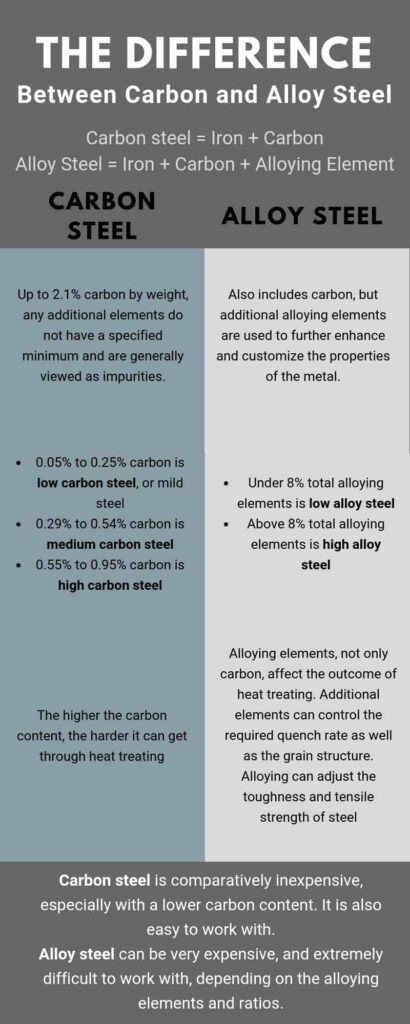Table of Contents
- Alloy Steel vs. Stainless Steel: A Comparative Analysis
- Alloy Steel vs. Stainless Steel: A Comparative Analysis
- Key Takeaways: Alloy Steel vs. Stainless Steel
- Frequently Asked Questions
- Question 1: What is the difference between alloy steel and stainless steel?
- Question 2: Which type of steel is stronger, alloy steel or stainless steel?
- Question 3: Which type of steel is more resistant to corrosion, alloy steel or stainless steel?
- Question 4: Can alloy steel be used in applications that require corrosion resistance?
- Question 5: Which type of steel is more expensive, alloy steel or stainless steel?
- Steel Types – Stainless Steel Vs Carbon Steel Explained.
- Final Summary: Comparing Alloy Steel and Stainless Steel
When it comes to choosing the right type of steel for your project, the options can be overwhelming. You may find yourself pondering over the differences between alloy steel and stainless steel. But fear not! In this comparative analysis, we will delve into the unique characteristics of these two materials, helping you make an informed decision. So, buckle up and let’s explore the fascinating world of alloy steel versus stainless steel!
Alloy steel, with its remarkable strength and versatility, has become a popular choice in various industries. Its composition is a mixture of different elements such as nickel, chromium, and manganese, giving it enhanced properties like increased hardness and improved corrosion resistance. This makes alloy steel an excellent option for applications that require durability and resistance to wear and tear. On the other hand, we have stainless steel, a material known for its impeccable shine and resistance to rust and staining. With its high chromium content, stainless steel forms a protective layer on its surface, preventing corrosion and making it ideal for applications in kitchens, medical equipment, and architectural structures. So, whether you’re looking for strength or aesthetics, alloy steel and stainless steel each have their unique strengths to offer. Let’s dive deeper into the details and discover which one suits your needs best.
Alloy Steel vs. Stainless Steel: A Comparative Analysis
Alloy steel and stainless steel are both popular choices in various industries, but they have distinct differences. Alloy steel is a combination of iron and other elements, such as chromium, nickel, or manganese, to enhance its strength and durability. On the other hand, stainless steel contains chromium, which forms a protective layer to prevent corrosion. While alloy steel is known for its high strength and resistance to wear and tear, stainless steel is prized for its corrosion resistance and aesthetic appeal. Choosing between the two depends on the specific application and requirements.
Alloy Steel vs. Stainless Steel: A Comparative Analysis
Alloy steel and stainless steel are two widely used materials in various industries. While they both have unique properties and applications, it’s important to understand the differences between them to make informed decisions. In this article, we will compare alloy steel and stainless steel in terms of their composition, properties, applications, and advantages.
Composition and Properties
Alloy steel is a type of steel that is alloyed with other elements such as manganese, nickel, chromium, or vanadium. These alloying elements enhance the properties of steel, such as strength, hardness, and corrosion resistance. The composition of alloy steel can vary depending on the desired properties, making it a versatile material for different applications.
Stainless steel, on the other hand, is a steel alloy that contains a minimum of 10.5% chromium by mass. This high chromium content forms a passive oxide layer on the surface, which provides excellent corrosion resistance. Additionally, stainless steel may also contain other alloying elements such as nickel, molybdenum, or titanium to further enhance its properties.
In terms of properties, alloy steel is known for its high strength, toughness, and wear resistance. It can withstand high temperatures and pressures, making it suitable for applications in the aerospace, automotive, and construction industries. Stainless steel, on the other hand, is valued for its corrosion resistance, making it ideal for applications in environments where exposure to moisture or chemicals is a concern, such as in the food processing, medical, and marine industries.
Applications
Alloy steel finds applications in a wide range of industries. Due to its high strength and toughness, it is commonly used in the construction of buildings, bridges, and heavy machinery. Alloy steel is also used in the manufacturing of automotive parts, aircraft components, and oil and gas pipelines. Its versatility allows it to be tailored to specific requirements, making it suitable for various applications.
Stainless steel, on the other hand, is widely used in the food and beverage industry due to its hygienic properties and resistance to corrosion. It is commonly used for kitchen appliances, cutlery, and food processing equipment. Stainless steel is also utilized in the medical field for surgical instruments, implants, and medical devices. In addition, it is used in architectural applications, such as in the construction of buildings, bridges, and monuments, due to its aesthetic appeal and durability.
Advantages of Alloy Steel
One of the main advantages of alloy steel is its exceptional strength and toughness. It can withstand heavy loads and high stress conditions, making it suitable for demanding applications. Alloy steel is also highly resistant to wear and abrasion, ensuring its durability in harsh environments. Additionally, the ability to customize the composition of alloy steel allows for the creation of materials with specific properties, enhancing its versatility and applicability in various industries.
Advantages of Stainless Steel
Stainless steel offers excellent corrosion resistance, making it a preferred choice in environments where exposure to moisture, chemicals, or high temperatures is common. It is easy to clean and maintain, making it suitable for applications in the food and medical industries. Stainless steel also has an attractive appearance and can be polished to a high shine, making it popular for architectural and decorative purposes.
In conclusion, alloy steel and stainless steel have distinct characteristics that make them suitable for different applications. Alloy steel is known for its strength, toughness, and wear resistance, while stainless steel excels in corrosion resistance and hygiene. Understanding the properties and applications of these materials is essential in selecting the right material for specific projects or industries.
Key Takeaways: Alloy Steel vs. Stainless Steel
- Alloy steel is a type of steel that contains additional elements, such as manganese, silicon, and nickel, to enhance its properties.
- Stainless steel is a type of steel that contains chromium, which provides excellent corrosion resistance.
- Alloy steel is known for its strength, durability, and versatility, making it ideal for heavy-duty applications.
- Stainless steel, on the other hand, is highly resistant to rust and stains, making it suitable for applications where hygiene and aesthetics are important.
- Both alloy steel and stainless steel have their own unique properties and applications, and the choice between them depends on the specific requirements of the project.
Frequently Asked Questions
Question 1: What is the difference between alloy steel and stainless steel?
Alloy steel and stainless steel are both types of steel that have specific properties and characteristics. The main difference between the two lies in their composition. Alloy steel is made by adding various elements such as manganese, nickel, chromium, and molybdenum to iron, which enhances its strength, hardness, and durability. On the other hand, stainless steel is a type of alloy steel that contains a minimum of 10.5% chromium. This chromium content forms a protective layer on the surface of the steel, making it highly resistant to corrosion and staining.
Another important difference is their applications. Alloy steel is commonly used in the manufacturing of machinery, tools, and construction materials due to its high strength and toughness. Stainless steel, on the other hand, is widely used in industries such as food processing, medical equipment, and automotive manufacturing, where corrosion resistance and hygiene are crucial.
Question 2: Which type of steel is stronger, alloy steel or stainless steel?
When it comes to strength, alloy steel is generally stronger than stainless steel. This is because alloy steel is specifically designed to have high strength and hardness, making it suitable for applications that require heavy loads and high stress. Stainless steel, although not as strong as alloy steel, still possesses good strength properties and is often preferred for its corrosion resistance.
It’s important to note that the strength of both alloy steel and stainless steel can vary depending on their specific composition and heat treatment. For certain applications, stainless steel may be chosen over alloy steel due to its other advantageous properties such as corrosion resistance, heat resistance, and aesthetic appeal.
Question 3: Which type of steel is more resistant to corrosion, alloy steel or stainless steel?
Stainless steel is known for its excellent corrosion resistance, making it highly resistant to rust and staining. This is due to the presence of chromium in its composition, which forms a thin, invisible layer of chromium oxide on the surface of the steel. This oxide layer acts as a protective barrier, preventing oxygen and moisture from reaching the underlying steel and causing corrosion.
While alloy steel may offer good corrosion resistance depending on its specific composition, it is generally not as resistant as stainless steel. Alloy steel may require additional protective coatings or treatments to enhance its corrosion resistance, especially in environments where it is exposed to moisture, chemicals, or high temperatures.
Question 4: Can alloy steel be used in applications that require corrosion resistance?
Although alloy steel is not inherently as corrosion-resistant as stainless steel, it can still be used in certain applications that require some level of corrosion resistance. For example, alloy steel with added elements such as nickel or chromium can exhibit improved corrosion resistance compared to standard carbon steel.
In cases where corrosion resistance is a critical factor, it is recommended to choose stainless steel instead of alloy steel. Stainless steel offers superior corrosion resistance due to its high chromium content and is widely used in industries where exposure to corrosive environments is common.
Question 5: Which type of steel is more expensive, alloy steel or stainless steel?
When it comes to cost, stainless steel is generally more expensive than alloy steel. The higher cost of stainless steel is mainly attributed to its superior corrosion resistance properties and the additional alloying elements, such as chromium, that are added during the manufacturing process.
On the other hand, alloy steel is often more cost-effective, as it can be tailored to meet specific performance requirements without the need for expensive alloying elements. However, it’s important to consider the overall life cycle cost of the material, including factors such as maintenance, repair, and replacement. In some cases, the long-term durability and corrosion resistance of stainless steel may outweigh the initial cost difference.
Steel Types – Stainless Steel Vs Carbon Steel Explained.
Final Summary: Comparing Alloy Steel and Stainless Steel
After conducting a comprehensive analysis of alloy steel and stainless steel, it is clear that both materials have their own unique properties and applications. Alloy steel is a versatile and durable option, offering excellent strength and resistance to wear and tear. On the other hand, stainless steel stands out with its exceptional corrosion resistance and hygienic qualities.
When it comes to strength and durability, alloy steel takes the lead. With its added elements such as chromium, nickel, and molybdenum, it offers superior tensile strength and hardness, making it ideal for high-stress applications like construction and automotive manufacturing. Conversely, stainless steel is widely recognized for its corrosion resistance, making it a top choice for applications that involve exposure to moisture or chemicals, such as kitchen appliances and medical equipment.
While alloy steel and stainless steel have their own unique strengths, it’s essential to consider the specific requirements of your project or application. If you prioritize strength and durability, alloy steel may be the better option. However, if corrosion resistance and hygiene are of utmost importance, stainless steel is the way to go.
In conclusion, whether you choose alloy steel or stainless steel, both materials offer impressive characteristics that cater to various industries and applications. By understanding the differences and benefits of each, you can make an informed decision and select the ideal material for your specific needs. So, whether you’re building a skyscraper or designing a surgical instrument, rest assured that alloy steel and stainless steel have got you covered.
Request a quote today!
[contact-form-7 id="1578" title="Contact form"]
Please compress the file into a ZIP or RAR file before uploading. Alternatively, send through your RFQ by email.
enquires@unitymanufacture.com





